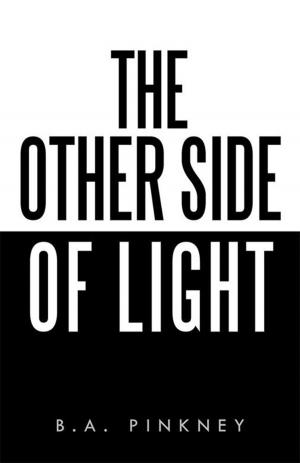| Author: | VILNIS BANKOVI?S | ISBN: | 9781514403631 |
| Publisher: | Xlibris US | Publication: | September 17, 2015 |
| Imprint: | Xlibris US | Language: | English |
| Author: | VILNIS BANKOVI?S |
| ISBN: | 9781514403631 |
| Publisher: | Xlibris US |
| Publication: | September 17, 2015 |
| Imprint: | Xlibris US |
| Language: | English |
THIS is a translation of a WWII memoir written by a Latvian who was conscripted into the German army in 1943 at age nineteen during the German occupation of the Baltic states. He was called out of his classes at a teacher preparatory institute, along with other boys of his age group, and drafted into the newly formed Latvian Legion, created by the Germans after their defeat at Stalingrad as an adjunct force against the Soviets on the Eastern Front. The memoir, written by Vilnis Bankovics and published in a second Latvian edition in August 2014 (Mansards), provides an eyewitness-participant account of the war in Russia and Eastern Europe that has remained largely unreported in English and American histories focused on Western Europe and the Pacifi c. As such, Bankovicss account is authentic history, told in spare, straightforward prose detailing the unalterable rush of events in the wars latter half and several varieties of captivity in the years afterward. The events he recounts form an absorbing story with a natural arc: the end of his carefree schooldays, induction, basic training in Germany, battles against the Red army, being wounded several times, losing his girl and his family in the war, being betrayed by the Germans and captured by the Russians. The second half of the book depicts nighttime interrogations; mass burials; a forced march to an overcrowded, typhus-affl icted prison; bodies littering the fields and roadsides and tossed like trash into burial pits; transportation by cattle car to a forced-labor camp in the Gulag above the Arctic Circle; illness and injury and near-starvation; but an ultimate survival and a return to the Baltic states and to Latvia at the end of his ordeal. The book draws its power from this last circumstance and the gradual revelation of an even more signifi cant kind of survivalpreservation of the authors own integrity and humanity despite the trials he undergoes. As the book shows, Vilnis Bankovics remains the thoughtful, generous, and sociable person he was before his ordeal began. Maris Roze
THIS is a translation of a WWII memoir written by a Latvian who was conscripted into the German army in 1943 at age nineteen during the German occupation of the Baltic states. He was called out of his classes at a teacher preparatory institute, along with other boys of his age group, and drafted into the newly formed Latvian Legion, created by the Germans after their defeat at Stalingrad as an adjunct force against the Soviets on the Eastern Front. The memoir, written by Vilnis Bankovics and published in a second Latvian edition in August 2014 (Mansards), provides an eyewitness-participant account of the war in Russia and Eastern Europe that has remained largely unreported in English and American histories focused on Western Europe and the Pacifi c. As such, Bankovicss account is authentic history, told in spare, straightforward prose detailing the unalterable rush of events in the wars latter half and several varieties of captivity in the years afterward. The events he recounts form an absorbing story with a natural arc: the end of his carefree schooldays, induction, basic training in Germany, battles against the Red army, being wounded several times, losing his girl and his family in the war, being betrayed by the Germans and captured by the Russians. The second half of the book depicts nighttime interrogations; mass burials; a forced march to an overcrowded, typhus-affl icted prison; bodies littering the fields and roadsides and tossed like trash into burial pits; transportation by cattle car to a forced-labor camp in the Gulag above the Arctic Circle; illness and injury and near-starvation; but an ultimate survival and a return to the Baltic states and to Latvia at the end of his ordeal. The book draws its power from this last circumstance and the gradual revelation of an even more signifi cant kind of survivalpreservation of the authors own integrity and humanity despite the trials he undergoes. As the book shows, Vilnis Bankovics remains the thoughtful, generous, and sociable person he was before his ordeal began. Maris Roze















